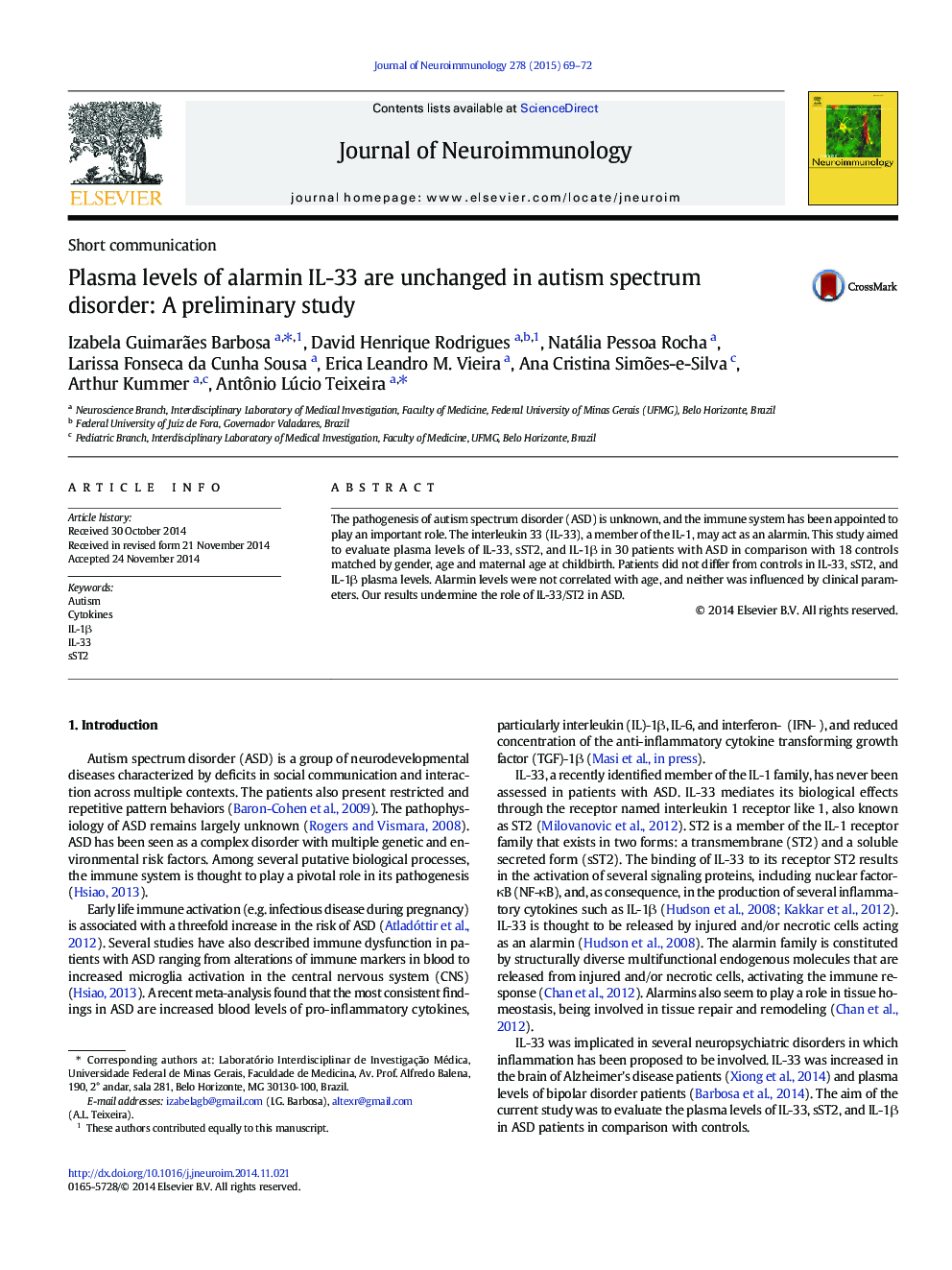| Article ID | Journal | Published Year | Pages | File Type |
|---|---|---|---|---|
| 6020374 | Journal of Neuroimmunology | 2015 | 4 Pages |
â¢A series of evidence indicate that autism is associated with immune dysfunction.â¢Alarmins are released by apoptotic or dying cells, activating the immune system.â¢There are no differences in alarmin levels in patients with autism and controls.
The pathogenesis of autism spectrum disorder (ASD) is unknown, and the immune system has been appointed to play an important role. The interleukin 33 (IL-33), a member of the IL-1, may act as an alarmin. This study aimed to evaluate plasma levels of IL-33, sST2, and IL-1β in 30 patients with ASD in comparison with 18 controls matched by gender, age and maternal age at childbirth. Patients did not differ from controls in IL-33, sST2, and IL-1β plasma levels. Alarmin levels were not correlated with age, and neither was influenced by clinical parameters. Our results undermine the role of IL-33/ST2 in ASD.
